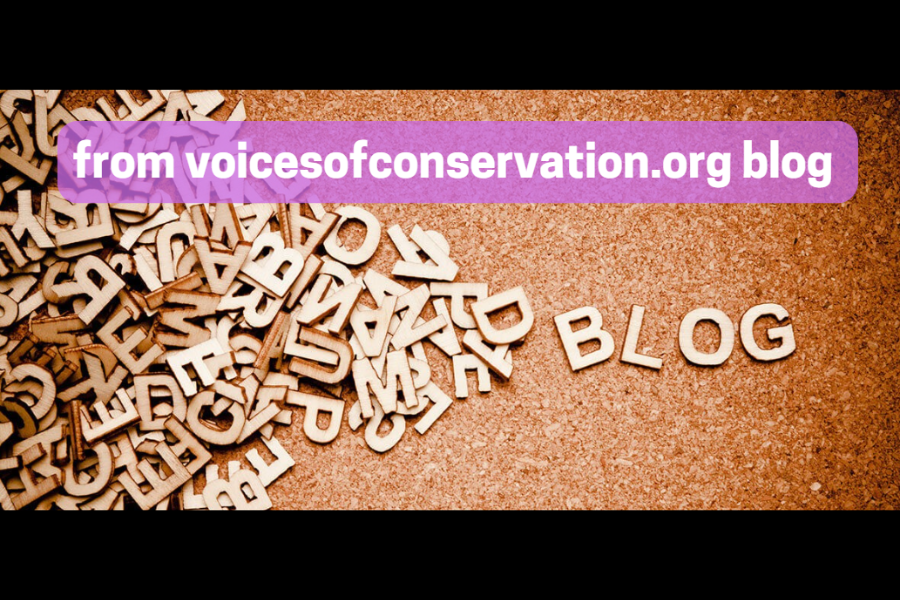Overview of Voices for Conservation
Welcome to a place where nature’s voices resonate in the breeze, touching those who listen with open hearts. At #voicesofconservation.org, we’re committed to amplifying these natural whispers to champion the protection and preservation of our planet’s vital ecosystems. Join us as we explore the significance of conservation and share inspiring success stories that drive hope and progress towards a sustainable future.
The Value of Environmental Protection
Conservation is vital for safeguarding our planet’s biodiversity and natural resources. By protecting ecosystems, we help ensure the survival of countless plant and animal species that are crucial for maintaining nature’s balance. Conservation also plays a key role in mitigating climate change, as it preserves forests, wetlands, and other habitats that capture carbon.
Sustainable practices like reforestation, wildlife protection, and water conservation not only aid in saving endangered species but also secure essential resources for future generations. Furthermore, conservation fosters eco-tourism, which supports local economies and raises environmental awareness.
Investing in conservation now helps build a more resilient and sustainable future for all life on Earth. Every effort, no matter how small, contributes to a larger collective impact, benefiting both current and future generations.
Success Stories: Actual Cases of Conservation Efforts
Imagine a world where endangered species once again thrive, thanks to tireless conservation efforts. Take the California condor, for example—a magnificent bird that was on the verge of extinction but has experienced a remarkable comeback through dedicated collaborative initiatives and close monitoring.
In Africa, community-driven projects have made a significant impact on wildlife populations. By engaging local communities in conservation efforts and developing sustainable eco-tourism, these projects have not only protected wildlife but also enhanced the well-being of local residents.
Across the globe, coral reef restoration efforts are yielding encouraging results. By transplanting resilient corals and enforcing strict marine protection, damaged reefs are gradually restoring their vibrant ecosystems.
These real-world successes underscore the incredible potential of collective action and innovation in conservation. Each of these stories stands as a testament to the power of dedication and collaboration in preserving our planet’s rich biodiversity.
Difficulties and Barriers in Conservation Work
Conservation work is essential, but it’s not without its challenges. One of the biggest obstacles is the ongoing battle against habitat destruction caused by deforestation, urban sprawl, and climate change. As habitats shrink, protecting endangered species becomes increasingly difficult.
Another significant hurdle is securing adequate funding for conservation projects. Often, the financial resources available fall short of what’s needed to address the scale of environmental issues. Moreover, navigating complex government regulations and policies can slow down conservation progress.
Engaging communities is crucial for successful conservation, but it’s not always easy. Building awareness and rallying diverse stakeholders can be tough, especially when overcoming skepticism or apathy towards conservation goals. Effective communication and outreach are key to mobilizing support.
Despite these challenges, passionate individuals and organizations are relentless in their efforts to safeguard our planet’s ecosystems and biodiversity.
How to Participate in Voices of Conservation
Want to make a real difference in conservation? Voices of Conservation offers several ways for you to get involved and help protect our planet.
You can start by joining volunteer programs, which range from local clean-up events to wildlife monitoring projects. These activities provide hands-on opportunities to make a tangible impact on the environment while connecting with others who share your passion for conservation.
If you prefer to contribute financially, consider donating to Voices of Conservation or other organizations dedicated to preserving nature. Even small donations can have a significant impact, supporting crucial projects and research.
Raising awareness is another powerful way to contribute. Share information about conservation issues on social media, organize educational events, or simply discuss the importance of protecting our natural resources with friends and family.
By engaging with Voices of Conservation, you become part of a global effort to create positive change for the future of our planet.
Grassroots Movements’ Effect on Conservation
Grassroots movements are essential to conservation efforts around the world. These local initiatives, driven by dedicated individuals, work tirelessly to protect the environment at the community level. By raising awareness and rallying local support, grassroots movements can drive meaningful change.
A major strength of grassroots conservation is its ability to involve people from diverse backgrounds. Whether through tree planting, beach clean-ups, or advocating for environmental policies, these movements empower individuals to make a real impact in their communities.
Additionally, grassroots efforts often result in lasting benefits for biodiversity and ecosystems. By working together and advocating for change, local groups can influence policymakers and effect systemic changes that benefit both wildlife and humans.
The significance of grassroots movements in conservation is immense. By instilling a sense of ownership and responsibility, these initiatives have the power to spark widespread positive change and make a global impact.
Summary:
Voices for Conservation is dedicated to protecting and preserving our planet’s ecosystems by amplifying the natural voices that advocate for conservation. The organization emphasizes the importance of environmental protection, highlighting how safeguarding biodiversity and ecosystems is crucial for balancing nature and combating climate change. Through sustainable practices like reforestation and eco-tourism, Voices of Conservation aims to ensure that future generations inherit a thriving planet.
The article showcases successful conservation efforts, such as the recovery of the California condor, community-driven wildlife protection projects in Africa, and global coral reef restoration initiatives. These success stories illustrate the power of collective action and innovation in making a positive environmental impact.
Despite the importance of conservation work, challenges such as habitat destruction, funding shortages, complex regulations, and the need for effective community engagement persist. Nevertheless, dedicated individuals and organizations continue to push forward with their mission to protect our planet.
For those looking to get involved, Voices of Conservation offers various ways to participate, including volunteering, donating, and raising awareness. Grassroots movements, driven by local initiatives and community involvement, play a crucial role in driving meaningful environmental change and fostering a sense of ownership and responsibility.
FAQs:
1. What is Voices for Conservation?
Voices for Conservation is an organization focused on protecting and preserving the planet’s ecosystems by amplifying the natural voices advocating for conservation. They explore the significance of conservation and share inspiring success stories.
2. Why is conservation important?
Conservation is crucial for maintaining biodiversity and natural resources. It helps protect ecosystems, ensures the survival of plant and animal species, mitigates climate change, and supports sustainable practices that benefit future generations.
3. What are some examples of successful conservation efforts?
Successful conservation efforts include the recovery of the California condor, community-led wildlife protection projects in Africa, and global coral reef restoration initiatives. These examples show the positive impact of dedicated conservation work.
4. What challenges do conservationists face?
Conservationists face challenges such as habitat destruction, securing adequate funding, navigating complex regulations, and engaging communities. These obstacles can hinder progress but are addressed through ongoing dedication and innovative solutions.
5. How can I get involved with Voices for Conservation?
You can get involved by participating in volunteer programs, donating to conservation initiatives, or raising awareness about conservation issues through social media and educational events. Your contributions, whether time or resources, can make a significant impact.
6. What role do grassroots movements play in conservation?
Grassroots movements are vital for local conservation efforts. They engage diverse communities, drive awareness, and lead to lasting changes in biodiversity and ecosystems. These movements empower individuals to make a tangible impact and influence policy decisions.
Discover the pulse of the world with VentsTribune.com, bringing you breaking news and more.

